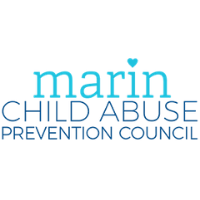
Anyone who has raised a child knows that raising teenagers can be a wild, twisty rollercoaster. Teenagers often feel like the rules and schedules at home and school don't apply to them. It can be stressful and exhausting to stay calm and find a balance between setting age appropriate limits and fostering independence.
Dear CPI,
I don’t know what to do with my 15-year-old. They want to go out with friends that I don’t know and then give me attitude when I ask where they’re going or who they’ll be with. They say I’m too controlling, but I feel like it’s my job to set age-appropriate limits. We argue a lot, though, and I worry about what it’s doing to our relationship. What can I do?
- Amalia
Dear Amalia,
Adolescence can be a hard developmental stage for everyone. The part of the brain responsible for thinking logically, managing emotions, and controlling impulses is still developing. This means teens still need their parents and caregivers to provide guidance, even as they’re pushing them away. It can be challenging for parents and caregivers to remain calm and involve their teens in setting rules and making decisions. They might feel like their teens aren’t ready or responsible enough. Yet this is how teens develop social, emotional, and life skills that will
prepare them to become independent adults. Here are some tips to try:
Remember there’s a lot going on. It’s common for teens to want more independence and less interference from adults. Teens go through physical, mental, emotional, and hormonal changes that can transform their appearance and moods. Some teens think they know all the answers and are invincible, and therefore don’t need parents to be involved in their business. Other times, teens are exploring different parts of their identities and discovering who they are — which might be different from what they’ve been taught to think, believe, or feel by their family
and society. These feelings and experiences can create confusion, discomfort, or internal conflict for teens, but they might not be ready or know how to share this with others.
Foster open communication. Create a safe and non-judgmental space for your teen to express themselves openly. Have regular, casual conversations about their thoughts, feelings, and experiences. Ask about school, their likes and dislikes, friendships, or other topics that interest them. Listen actively and acknowledge and empathize with what they say, even if you don’t agree with them. Avoid discussing discipline, expressing disapproval, or giving advice unless you’re asked. This helps keep the lines of communication open.
Talk about realistic expectations. Testing limits is a natural part of adolescence. It’s how teens practice thinking for themselves, making decisions, and solving problems. When teens ignore family rules, some parents and caregivers react by becoming stricter about rules and consequences. Others give in to avoid a power struggle. Neither reaction is helpful. Instead, talk with your teen about realistic rules and expectations. Involve them in developing a
few family rules about going out with friends that they can agree to follow and that will reassure you they’re safe and responsible. Discuss which expectations are non-negotiable (e.g., keeping you informed about where they are) and which ones are flexible depending on the situation (perhaps their curfew).
Encourage independence. While it's natural to want to protect and guide your teen, it's also essential to encourage independence and autonomy. Allow them to make their own decisions (within reason) and learn from their mistakes. Offer guidance and support but resist the urge to always say ‘no’ or do things for them.
FINAL THOUGHTS: Maintaining open communication and a positive relationship with teens is the most important job parents have during adolescence. It’s easier said than done, but your efforts will pay off for years to come.
CPI's monthly parenting article provides tips for families raising children, based on the world-renowned Triple P – Positive Parenting Program, available in Sonoma County at CPI. If you have a question or idea for a future column, please email anneb@calparents.org
This article is created by Nicole Young, the mother of two children, ages 17 and 21, who also manages Santa Cruz County's Triple P - Positive Parenting Program. Scientifically proven, Triple P is available locally through the Child Parent Institute. Our classes are listed at calparents.org/classes.
EN ESPANOL
Cualquiera que haya criado a un niño sabe que criar adolescentes puede ser una montaña rusa salvaje y retorcida. Los adolescentes a menudo sienten que las reglas y los horarios en el hogar y la escuela no se aplican a ellos. Puede ser estresante y agotador mantener la calma y encontrar un equilibrio entre establecer límites apropiados para la edad y fomentar la independencia.
Estimada CPI,
No sé qué hacer con mi hijo de 15 años. Quiere salir con amigos que no conozco y luego me desafía cuando pregunto adónde va o con quién va a estar. Dice que soy demasiado controladora, pero siento que es mi trabajo establecer límites apropiados para su edad. Discutimos mucho, sin embargo, y me preocupa cómo está afectando a nuestra relación. ¿Qué puedo hacer?
- Amalia
Estimada Amalia,
La adolescencia puede ser una etapa de desarrollo difícil para todos. La parte del cerebro responsable de pensar lógicamente, manejar las emociones y controlar los impulsos aún se está desarrollando. Esto significa que los adolescentes siguen necesitando que sus padres y cuidadores les brinden orientación, incluso cuando los alejan. Puede ser un desafío para los padres y cuidadores mantener la calma e involucrar a sus hijos adolescentes en establecer reglas y la toma de decisiones. Es posible que sientan que sus hijos adolescentes no están preparados o no son lo suficientemente responsables. Sin embargo, así es como los adolescentes desarrollan habilidades sociales, emocionales y para la vida que los prepararán para convertirse en adultos independientes. Estos son algunos consejos que puede probar:
Recuerde que están pasando muchas cosas. Es común que los adolescentes quieran más independencia y menos interferencia de los adultos. Los adolescentes pasan por cambios físicos, mentales, emocionales y hormonales que pueden transformar su apariencia y estado de ánimo. Algunos adolescentes piensan que saben todas las respuestas y que son invencibles, y por lo tanto no necesitan que los padres se metan en sus asuntos. Otras veces, los adolescentes están explorando diferentes partes de sus identidades y descubriendo quiénes son, lo que puede ser diferente de lo que su familia y la sociedad les ha enseñado a pensar, creer o sentir.Estos sentimientos y experiencias pueden crear confusión, incomodidad o conflicto interno en los adolescentes, pero es posible que no estén preparados o no sepan cómo compartirlos con los demás.
Fomente la comunicación abierta. Dedique un espacio seguro y sin prejuicios para que su hijo adolescente se exprese abiertamente. Tenga conversaciones regulares y casuales sobre sus pensamientos, sentimientos y experiencias. Pregúntele sobre la escuela, sus gustos y disgustos, sus amistades u otros temas que le interese. Escuche activamente y reconozca y empatice con lo que dice, incluso si no está de acuerdo con su punto de vista. Evite hablar de disciplina, expresar desaprobación o dar consejos a menos que se lo pidan. Esto ayuda a mantener
abiertas las líneas de comunicación.
Hablen sobre expectativas realistas. Poner a prueba los límites es una parte natural de laadolescencia. Es la forma en que los adolescentes practican pensar por sí mismos, tomar decisiones y resolver problemas. Cuando los adolescentes ignoran las reglas familiares, algunos padres y cuidadores reaccionan volviéndose más estrictos con respecto a las reglas y las consecuencias. Otros ceden para evitar una lucha de poder. Ninguna de las dos reacciones es útil.En su lugar, hable con su hijo adolescente sobre reglas y expectativas realistas. Involúcrelo en el
desarrollo de algunas reglas familiares sobre salir con amigos que pueda acordar seguir y que le aseguren que está seguro y es responsable. Hablen sobre qué expectativas no son negociables (por ejemplo, mantenerle informado a usted sobre dónde está) y cuáles son flexibles según la situación (tal vez la hora que tiene que estar de regreso a la casa).
Animar la independencia. Mientras es natural querer proteger y guiar a su adolescente, también es esencial animar la independencia y la autonomía. Permítale tomar sus propias decisiones (dentro de lo razonable) y aprender de sus errores. Ofrezca orientación y apoyo, pero resista la tentación de siempre decir que ‘no’ o hacer las cosas por él o ella.
REFLEXIONES FINALES: Mantener la comunicación abierta y una relación positiva con los adolescentes es el trabajo más importante que tienen los padres durante la adolescencia. Esmás fácil decirlo que hacerlo, pero sus esfuerzos darán fruto en los años venideros.
El artículo mensual sobre crianza de CPI proporciona consejos para las familias que crían niños, basados en el programa de crianza positiva Triple P de renombre mundial, disponible en el condado de Sonoma en CPI. Si tiene una pregunta o idea para una columna futura, envíe un correo electrónico a anneb@calparents.org
Este artículo fue creado por Nicole Young, madre de dos niños, de 17 y 21 años de edad, quien también administra el Programa de Paternidad Positiva Triple P del condado de Santa Cruz. Científicamente probado, Triple P está disponible localmente a través del Child Parent Institute. Nuestras clases se enumeran en calparents.org/classes.











